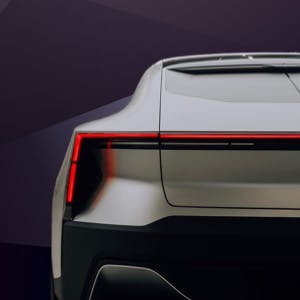- Home
- All updates
- EDGE Insights
- Industries
- Company Search
- My Watchlists (Beta)
All Updates
General Motors’ Cruise applies to obtain permission test custom-built ‘Origin’ robotaxis in San Francisco
Hexagon unveils Advanced Compensation for metal 3D printing
Eden AI raises EUR 3 million in seed funding to accelerate product development
Wiz acquires Dazz to expand cloud security remediation capabilities
Immutable partners with Altura to enhance Web3 game development and marketplace solutions
OneCell Diagnostics raises USD 16 million in Series A funding to enhance cancer diagnostics
BioLineRx and Ayrmid partner to license and commercialize APHEXDA across multiple indications
SOPHiA GENETICS announces global launch of MSK-IMPACT powered with SOPHiA DDM
Biofidelity launches Aspyre Clinical Test for lung cancer detection
Spendesk partners with Adyen to enhance SMB spend management with banking-as-a-service solution
Mews acquires Swedish RMS provider Atomize to enhance Hospitality Cloud platform

Auto Tech
General Motors’ Cruise applies to obtain permission test custom-built ‘Origin’ robotaxis in San Francisco
-
General Motors (GM) autonomous car subsidiary Cruise applied for a permit with the California Department of Motor Vehicles (DMV) to test Cruise-branded custom-built driverless robotaxi “Origin” on public roads in San Francisco.
-
Origin, developed in collaboration with GM and Honda, is specifically designed for autonomous ride-haling and comes without the steering wheel and pedals. It can travel at highway speeds.
-
Once when granted, the permission from DMV will allow Cruise to conduct test rides but will need another permission from National Highway Traffic and Safety Administration (NHTSA) California Public Utilities Commission (CPUC) to launch commercial operations.
-
The Origin vehicle needs certain special exemptions from NHTSA to operate commercially, as the federal motor vehicle safety standards (FMVSS) today require vehicles to have steering wheels, windshield wiping, washing systems, etc—which Origin autonomous vehicles are not equipped with. In February 2021, GM applied to NHTSA to obtain exemptions from six of these requirements, but the decision is pending.
-
Analyst QuickTake: GM first introduced its custom-built Origin for the autonomous ride-hailing market in January 2020, and plans to commence production of the vehicle in 2023. If granted, the testing permission will help the company to realize these goals. Cruise’s current vehicles built on Chevy Bolt electric vehicles (EVs) are already running commercial rides in San Franciso. Meanwhile, its competitor, Alphabet-owned Waymo, also revealed a robotaxi prototype developed in collaboration with Chinese automaker Geely in November, with plans to bring it to the market in the coming years.
Contact us
By using this site, you agree to allow SPEEDA Edge and our partners to use cookies for analytics and personalization. Visit our privacy policy for more information about our data collection practices.